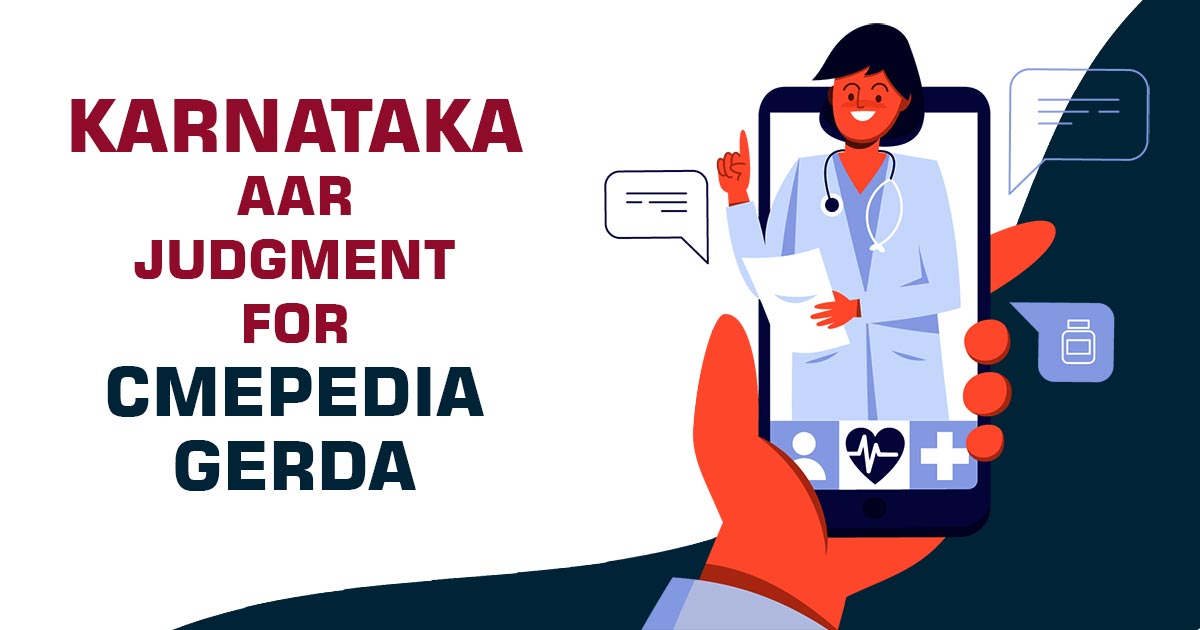
An AAR recently ruled that online courses particularly focused on doctors and mandated by the Medical Council should also come under the radar of the Goods and Services Tax (GST). This ruling may complicate the situation of tax implication on education and even medical services.
Here the important fact is that both medical care and education are outside the purview of the GST regime.
Karnataka AAR has already made it clear that online courses don’t fit in the definition of the medical facility even if such courses are made compulsory for doctors.
Additionally, AAR governed that such courses are not professional courses and are more related to executive education, thus they must face GST.
According to the AAR’s decision announced in the first week of February, Cmepedia Gerda delivers services to doctors to sustain professional standards as needed by law & guidelines by the Medical Council.
Online institutes seeking clearness in the matter of whether paid educational materials, which are consumed by students or healthcare professionals to meet the mandated demand by their institution or medical professional body, are covered under GST or not. And if the fee levied for the purpose of online portfolio management of healthcare professionals is exempt from Goods and Services Tax (GST).
In this matter, Harpreet Singh, Partner, Indirect taxes at KPMG in India responded that Since both education and healthcare services are exempted services, there was a demand for non-implementation of GST on services provided to healthcare workers, mainly doctors to maintain standards as per the guidelines given by the Medical Council.
The ruling stated that courses through online mode are not mentioned in the curriculum required for getting a degree from a recognized university and hence these should be considered similar to any other online education/courses. As per the GST framework, if a degree is awarded through online mode it is beyond the purview of the GST system but the table will turn in case of a course or a training program.
Harpreet Singh added that In this case, the exemption has been denied because the company itself did not provide any educational services and was merely acting as liaison offices between doctors and professional organizations, and content providers.
Thus the AAR ruled that the applicant does not deliver any education to the healthcare professionals, and services rendered by the applicant to health care professionals including doctors are not covered under any exemption of GST and hence will be taxed.








